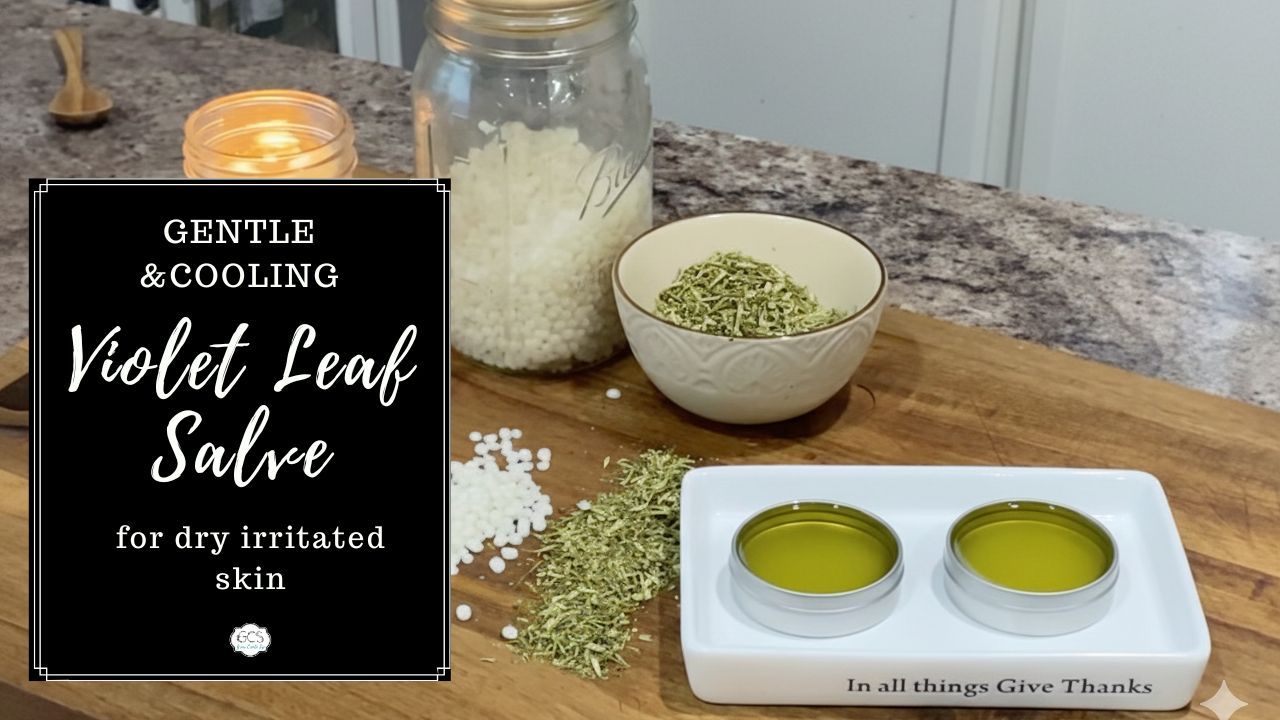Rosehip Tea Benefits and Best Rosehip Tea
Jul 23, 2021
Did you know that rose hips, depending on the plant variety, have the highest concentration of vitamin c over any other fruit or vegetable? These studies show that not only is vitamin c one of the health benefits of rose hips but vitamin c is the powerhouse for all of your body's systems and boosts your immune system as well. What is the best rose hip tea? We will dive into that a bit later.
While we previously covered what to do with rose petals, today we are going to dive deeper into rosehip tea benefits as well as the best rosehip tea to sip. Once you get this simple rosehip tea down you may find yourself wanting to make some Aronia and Elderberry Syrup with them or maybe some Herbal Apple Cider Vinegar Gummies! We share even more in the Pioneering Today Podcast episode above. There are so many things you can do with rosehips.
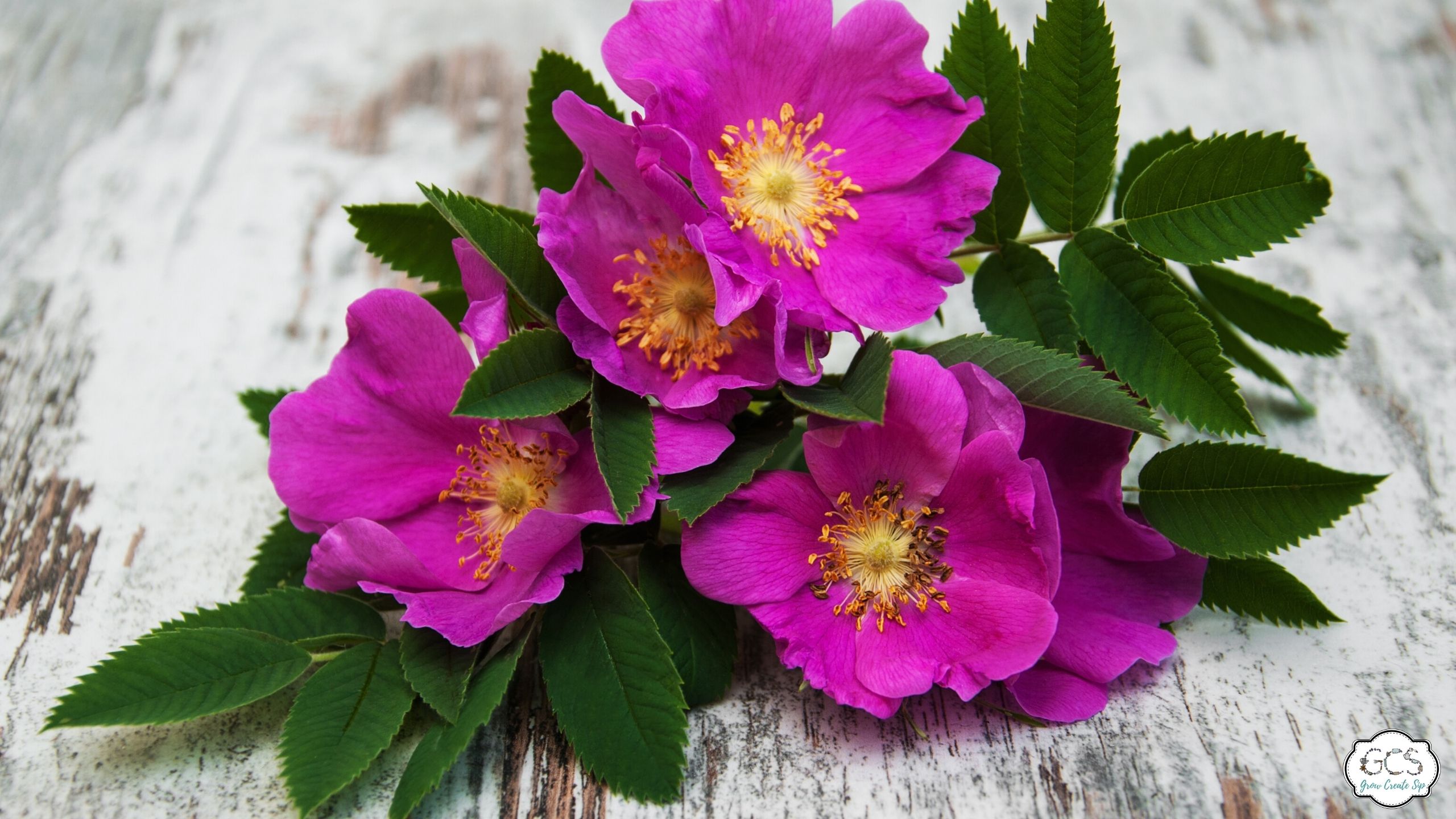
Rosa Canina
First, we need to chat about which roses make the best hips, or make any hips at all because the honest truth is that not just any rose bush is going to cut it here. What is a rose hip anyway? Rose hips are actually the fruit of the rose.
So if you think about a berry vine-like blackberry or raspberry they leaf out, then they flower then they produce fruit from the flower. It works the same way with a rose plant. Those fruits in turn produce seeds. In the case of modern rose bushes though they do not produce any fruit and so in turn would not produce any rose hips.
There are many varieties of roses that produce rose hips, a few of them are:
- Rugosa Rose
- Rosa Rubifolia
- Rosa Canina
- Rosa 'Fru Dagmar Hastrup
- Rosa spinosissima
Which is the best rose plant for growing hips though? You probably guessed it by the title of this section, the rosa canina takes the cake for the best of rose plants for growing hips. Rosa Canina is Latin for the Dog Rose.
The Dog Rose is the most used plant for rose hips for all the major herb suppliers in the US including Starwest Botanicals and Frontier Co-op. There is about 1700-2000 mg of calcium for every 100 grams of dehydrated rose hips. That’s totally amazing!
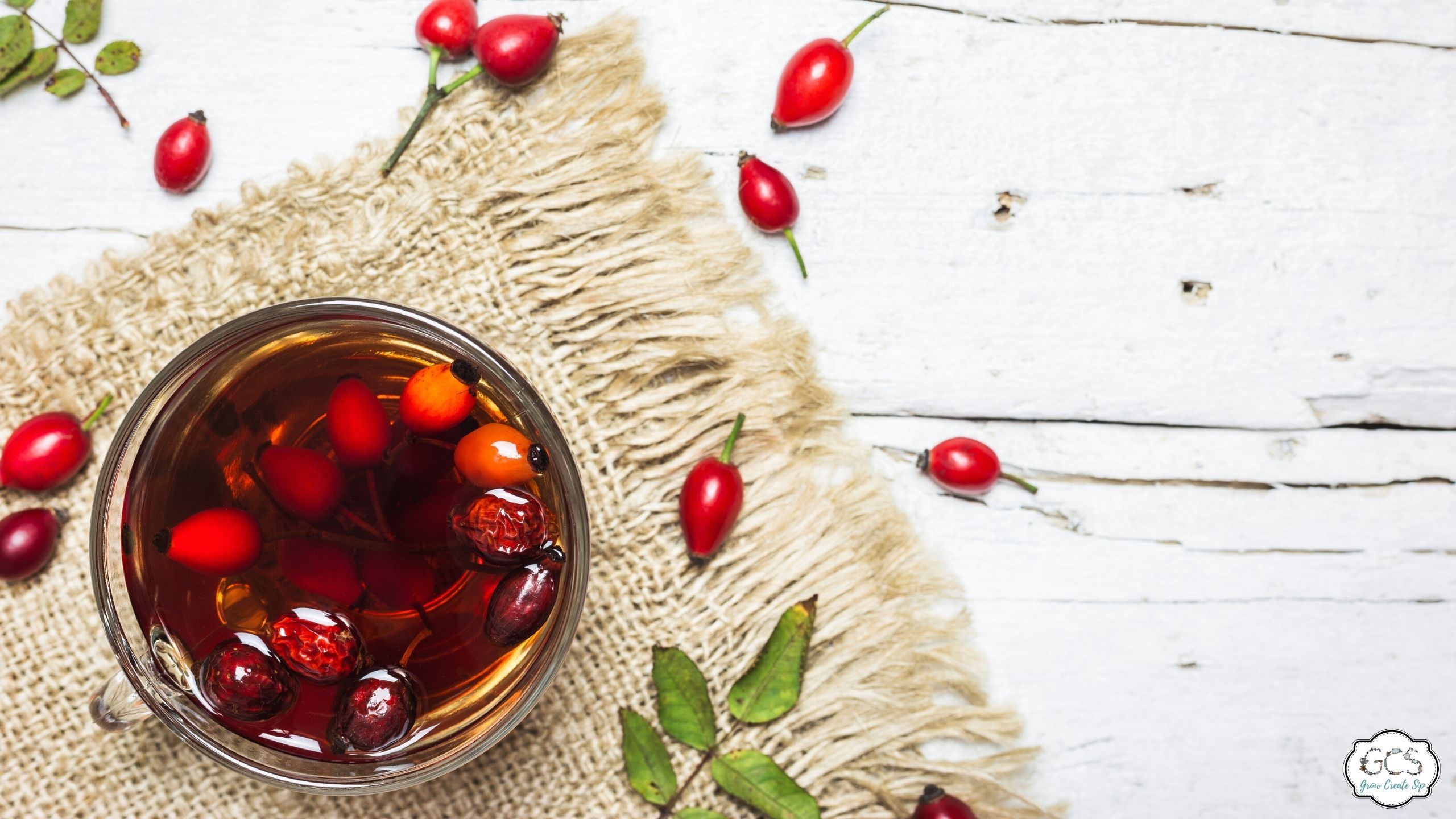
Rose Hip Tea
Rose hip tea is made from the fruits of these rose plants and has a berry-like flavor that is tart and fruity. I like to compare rose hip tea to maybe a hibiscus flavor that isn’t quite as sweet. Rose hip tea is fabulous for pairing with similar flavors to that of hibiscus such as:
- Cinnamon
- Red Rooibos
- Blackberry
- Cherry
- Raspberry
- Strawberry
- Hibiscus
- Aronia Berries
- Blueberries
- Clove
- Elderberry
- Cardamom
Before we start:
This herbal information is just that, information. This blog post and I DO NOT INTEND to treat, cure, or diagnose any disease or illness. This is for informational, educational and entertainment purposes only. Please consult a physician before using herbs medicinally.
This post also contains affiliate links throughout. Translation: We get a little kick back for sharing certain products, at no additional cost to you, should you choose to purchase said items. And - thank you for supporting our farm and family! Read the full disclaimer here.
What is Rose Hip Tea Good For?
As we mentioned previously rose hip tea is a super high source of vitamin C but that is only one of the health benefits. Drinking rose hip tea boosts the immune system and helps it function at its strongest because of the vitamin C. In doing so the immune system can fight off free radicals in the body to help keep the body strong and healthy.
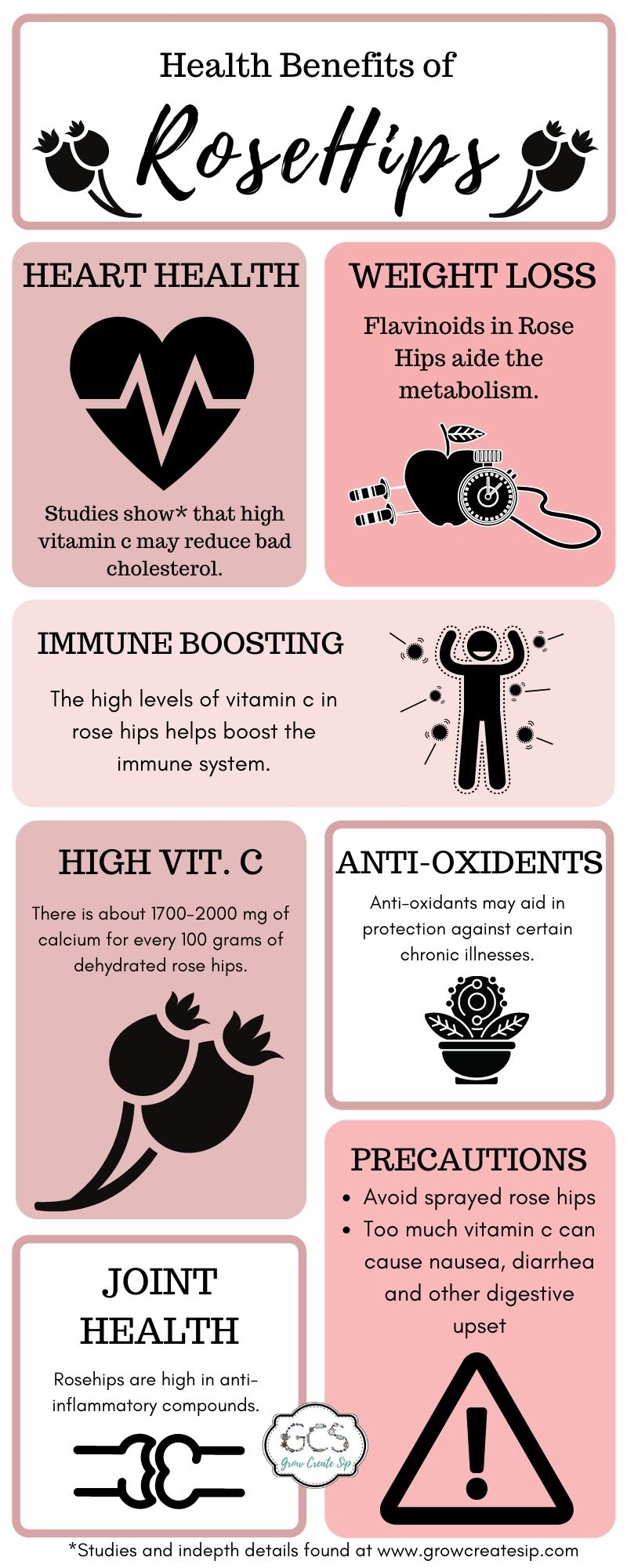
Rosehip Tea Benefits
Drinking rose hip tea has many health benefits but please don’t take this as medical advice, this information is for educational purposes only. We are going to dive into a few of the health benefits here, this list is certainly not exhaustive. If you would like a deeper dive make sure to check out our Herbal Studio & Communi-tea for a 4-page herbal monograph on roses.
Heart Health- One study shows that the antioxidants, as well as the high vitamin C in rose hips, may reduce bad cholesterol as well as triglycerides which are two of the biggest factors when it comes to heart disease. Another study shows that they are also helpful in lowering blood pressure.
There are so many great studies on rose hips and the effect they have on heart health that it’s hard not to share just one more here showing that powdered rose hip powder was able to help these people to better manage their blood pressure.
Weight loss- Rose hips are high in tiliroside, a flavonoid, which aides the metabolism and in turn can help promote healthy weight loss. In addition by substituting rose hip tea for other high sugar, drinks could also be helpful in the weight loss journey.
Rose hips have also been shown to decrease inflammation and in turn, pain making it easier to get around and stick to that exercise plan.
Immune Boosting- The high levels of vitamin c in rose hips help to boost the immune system. We increase our vitamin c intake any time we are feeling run down, tired, worn out, or during bouts of colds and flu. Vitamin C is essential in stimulating the immune system to help it work better.
Side effects- Make sure to avoid using rose hips from bushes that have been sprayed with pesticides and chemicals. As with any amount of vitamin c people can handle different amounts so be on the lookout as signs of too much vitamin c if you are experiencing diarrhea, stomach aches, nausea, abdominal pain, cramps, or vomiting, and remove the rosehips or cut back.
Allergic reaction- Allergic reactions to rose hips are very rare but a possibility depending on the person. If you think you are having an allergic reaction to rose hips stop use and consult your physician.
Symptoms could include swelling, itching, rash, especially around the face in the mouth or the throat. Also dizziness and trouble breathing. Again allergic reactions to rose hips are not common and very rare.
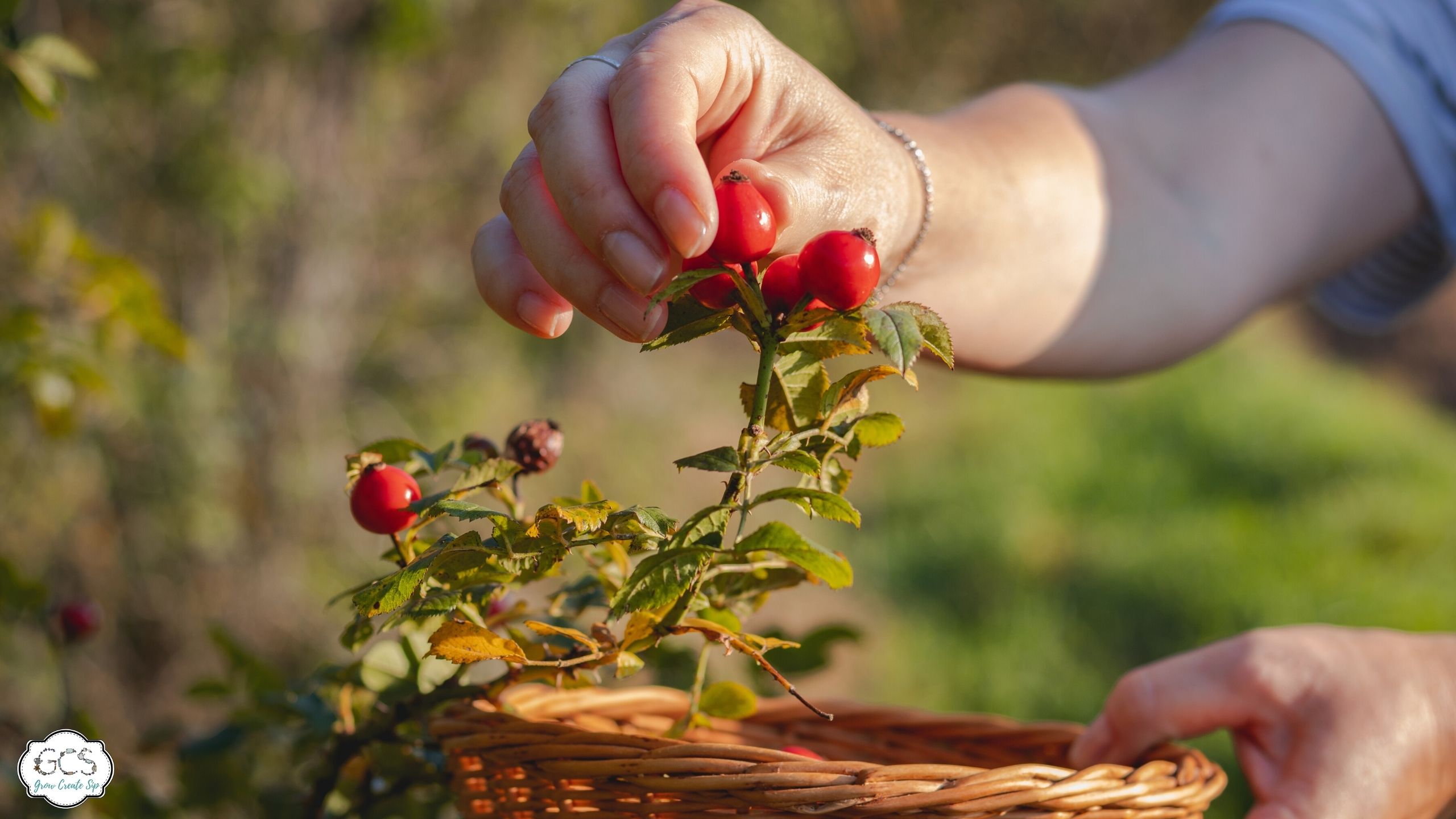
Harvesting Rose Hips
Rose plants go dormant in the fall and the best time of year to harvest rose hips is in the fall after the first frost has taken place. The frost makes the rose hips just a bit sweeter. The rose hips will show up after the flowers have bloomed and then lost their petals. Much like after an apple tree has bloomed and the fruit of the apple has appeared. Rose hips are the fruit of the rose bush and inside of the rose hips are the seeds.
To harvest the rose hips:
- Either pluck by hand or cut the rose hips off of the plant with scissors
- Place them in a basket or colander
- Gently rinse them off picking any bad rose hips out and composting them
- Remove the seeds from the inside of the rose hips, this can be done by opening the rosehips up with your hands to scoop out the seeds or using a small spoon
- Rinse the rose hips and then use fresh or preserve them
How to Process Rose Hips for Tea
Once you have completed the harvesting instructions above and deseeded your rose hips it’s time to get to preserving them. While you could certainly make rose hip tea from freshly harvested rose hips we highly recommend drying the rose hips first because it will intensify the flavor of the rose hips in your tea.
We covered many ways to dehydrate flowers for tea in a previous article but our favorite way to dehydrate rose hips is by using an electric dehydrator. It is the most consistent and will give you the best results for preserving your rose hip tea for months to come.
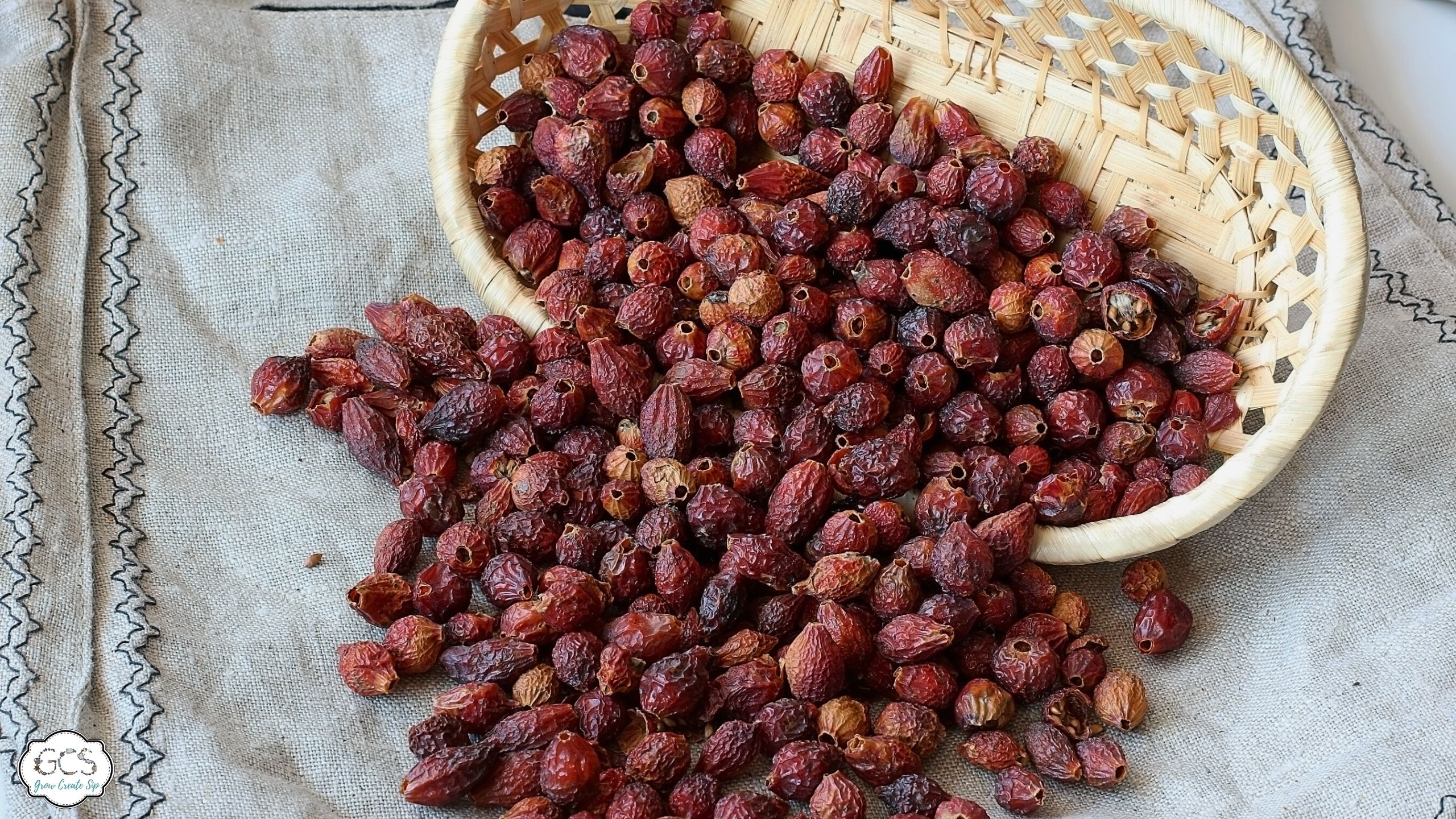
Dried Rose Hips
While you could certainly use the air-drying method for rose hips we are sharing directions today on how to dry them using an electric dehydrator for consistency.
How to dry rose hips in a dehydrator:
- Place deseeded, rinsed rose hips on dehydrator trays
- Make sure to spread them out evenly with plenty of space for air to flow around them
- If there are larger rose hips cut all hips down to a consistent size so that you have even dehydration around them all.
- Dry at approximately 125°F to 145°F (the lower the better for preservation but too low will allow mold to grow, consistency in fruit size is a must)
- Dry time will vary depending on the humidity in the room and in the dehydrator as well as the temperature around the machine. The estimated time would be 6 hours or until crisp but not burnt.
How to Make Tea With Rose Hips
Drinking Rosehip tea is not only a great way to get some vitamin c in but it has a wonderful slightly tangy and tart flavor similar to that of hibiscus tea or cranberry juice. Let’s get to making a cup, shall we?!

Rose Hip Tea
Ingredients
- 3 tablespoons of dried rose hips
- 8 cups of boiling water
- 8 cup French Press
- Raw Honey, optional
Instructions
- Add dried rose hips to french press
- Top french press off with boiling water
- Let steep for 5-7 minutes or desired to steep strength
- Pour into your favorite teacup or mug and add raw honey to taste. Enjoy!
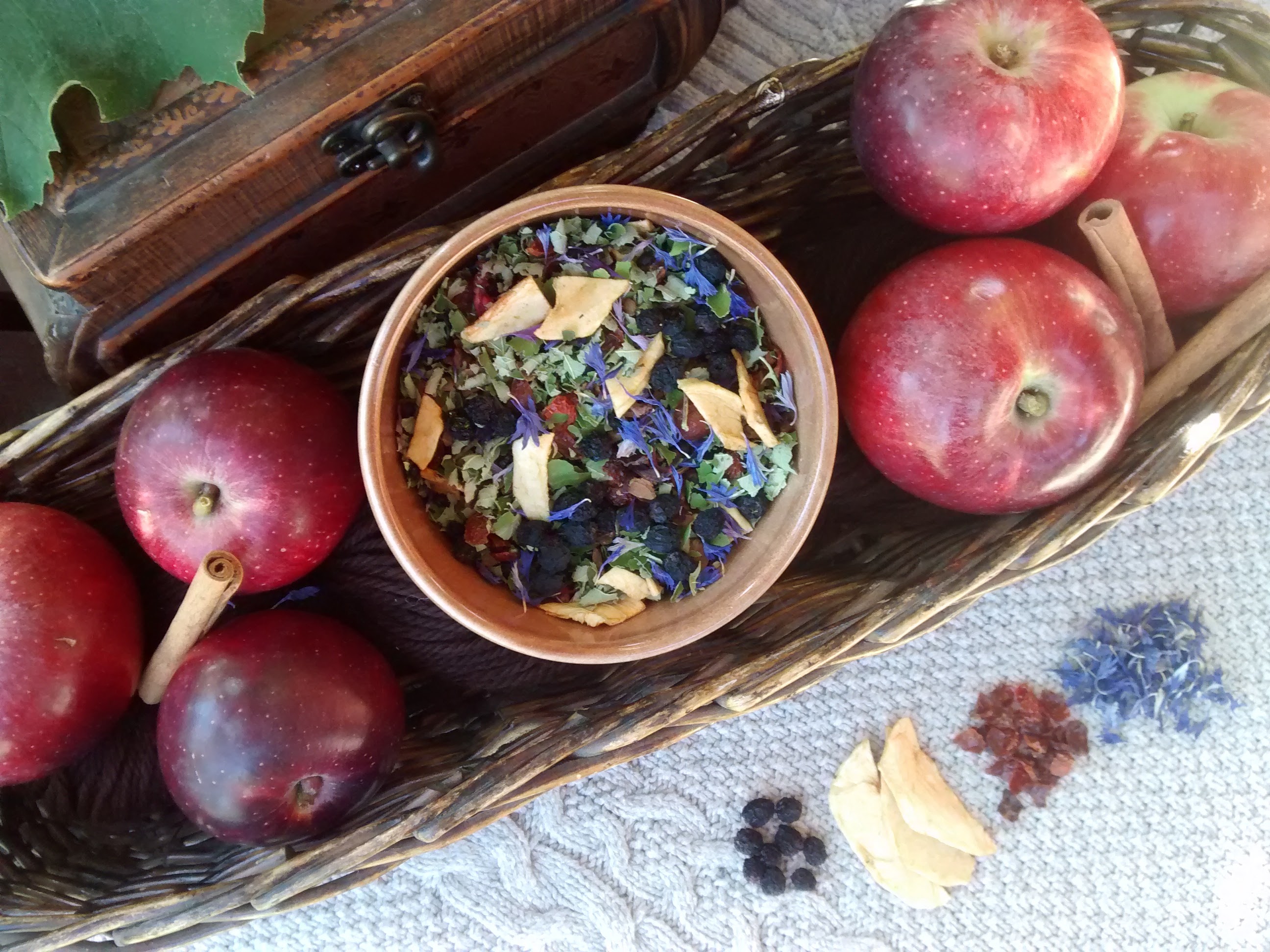
Best Rosehip Tea
Drinking rosehip tea is quite enjoyable but where do you find the best rosehip tea? If you aren’t able to grow and harvest your own rose hips there are some fabulous options for being able to make the best cup of rosehip tea at home!
Purchase Rosehips dried- While I wouldn’t recommend any teabags of rosehips because they are not as high quality, usually old and from the bottom of the barrel (known as tea dust) I would recommend you buy rosehips in bulk from somewhere like Starwest Botanicals and make yourself an excellent cup of tea.
Farmhouse Teas- We also use high-quality, loose-leaf teas with rosehips in many of our teas over at Farmhouse Teas. Here are some of our customer favorites:
- Harvest Berry Herbal Tea (Like blackberry tea in a cup!)
- Ma’s Nursing Tea for nursing mamas
- Get Outta Ear Herbal Wellness Tea
- Farmer’s Wife Raspberry Herbal Tea (A great tea for women at any stage of life)
- Farmer’s Market Strawberry Green Tea
- Strawberry Mojito Kombucha Flavoring Packet
- Lamplighter Lemonette Herbal Tea (A customer sleepy time fav)
- High Desert Hibiscus Herbal Tea (A Farmhouse favorite on ice)
- Wild Cherry Bark Syrup Mix (A fall/winter pantry must-have!)
- Herbal Elderberry Syrup Mix

I don’t know about you but I’m super excited about those high amounts of vitamin c in rose hips and all the potential they have for boosting our health! Now all I need to do here at the farm is convince my roses that they like to grow in clay.
I think we will have an easier time mixing in some sandy soil to convenience them to grow. Then I can anxiously await that first frost to harvest my fresh rose hips and make a fragrant tasty cup of tea!
If you haven’t already, make sure you sign up for our FREE tea blending e-mail workshop to learn more about blending your own tea at home. I”d also like to extend an invitation to you to join us in the Herbal Studio & Communi-tea full of like-minded herb and tea-loving people crafting and creating to their heart's content.
Before you go, would you share with me what kind of rose plants you have down below in the comment section? Are they are modern hybrids or do you have an heirloom already that grows rose hips? What type of rose is on your wish list?
Related posts:
- Rose Tea Benefits and Damask Roses
- How to Preserve Flowers for Tea
- How to Dehydrate Chicory Root
- Best Food Dehydrator for Dehydrating Herbs
- Best Ways for Storing Dried Herbs
- How to Dry Herbs Without a Dehydrator
- 10 Herbs to Grow for Tea









